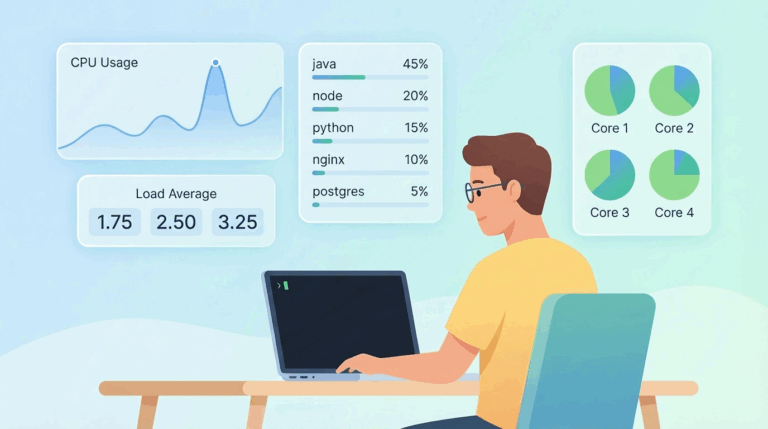This article is part of the following series.
- 4 ways to list files within a rpm package in Linux
- 3 ways to Check RPM package dependency in Linux
- How to use yum to list All versions of Package in Linux
- 5 ways to list installed packages in Linux
The default behavior of yum is to install the most recent version of a package from the enabled repositories. However, there are situations where it may be necessary to install a particular version or revert to an earlier version of a package that is already installed.
In this post, we will show how to make yum list all available versions of a specified package and how to instruct it to install the particular one.
Table of Contents
Show All Versions of Package with yum
Run the following command to show all versions of a package, available in enabled repositories:
$yum list <package_name> --showduplicates
Example:
# yum list glibc-locale-source --showduplicates
This system is not registered to Red Hat Subscription Management. You can use subscription-manager to register.
Last metadata expiration check: 0:31:11 ago on Wed 20 Jul 2022 02:01:41 AM GMT.
Installed Packages
glibc-locale-source.x86_64 2.28-151.el8 @wd_rpm
Available Packages
glibc-locale-source.x86_64 2.28-151.el8 wd_rpm
glibc-locale-source.x86_64 2.28-164.el8_5.3 wd_rpm
From the output, we can see that there are 3 packages in total. One package is installed. Two packages are available to install from remote repository.
See also: Mastering the Linux Command Line — Your Complete Free Training Guide
Installed Packages: This section lists the packages that are currently installed on the system. In this case, it shows that the glibc-locale-source package with version 2.28-151.el8 is installed (@wd_rpm indicates it was installed from wd_rpm package repository).
Available Packages: This section lists the available packages that can be installed from the configured repositories. Here, it shows that there are two available versions of glibc-locale-source: version 2.28-151.el8 and version 2.28-164.el8_5.3. The wd_rpm tag indicates that these versions are available from remote package repository.
Install Specific Version Of Package with yum in Linux
To install a specific version of a package, run: $ sudo yum install <package_name>–<version_info>
yum install glibc-locale-source-2.28-151.el8
If you’re looking how install a package on Linux, we strongly suggest reading this article.
Force Yum To Downgrade Package
If we already have the latest version of a package installed, but we need to downgrade it to the particular version that is older, execute:
$ sudo yum downgrade <package_name>-<version_info>
understanding RPM file name
RPM package files names consist of four elements (plus the .rpm suffix): name-version- release.architecture:
Here is one example. kernel-4.18.0-425.3.1.el8.x86_64
Name : kernel
Version : 4.18.0
Release : 425.3.1.el8
Architecture : x86_64
Size : 8.8 M
Only the package name is required for installing packages from repositories. If multiple versions exist, the package with the higher version number is installed. If multiple releases of a single version exist, the package with the higher release number is installed.
Install, uninstall & upgrade packages with yum
Here are the Yum commands for installing, removing and updating packages.
| Command | Functionality | Example command |
|---|---|---|
| install | Install a package from yum repository | yum install nginx |
| remove | Remove an installed package and its dependencies | yum remove nginx |
| erase | Similar to remove command | yum erase nginx |
| update | Update or or more packages on the system | yum update or sudo yum update gcc |
| update-to | Update or or more packages to a specific version | yum update-to ngingx-2.7-1.1 |
| upgrade | update all packages to the latest version | yum upgrade |
| reinstall | Reinstall current version of a specific package | yum reinstall httpd |
| autoremove | Remove a package and all other unnecessary packages | yum autoremove httpd |
| downgrade | Downgrade a specific package to an earlier version | yum downgrade nginx |
| swap | Remove package and install another | yum swap nginx httpd |
| localinstall | Install a package from a local repository | yum localinstall package.rpm |
| groupinstall | Install packages from a specific group | yum groupinstall “group name” |
Base Package Commands in yum
These commands will help you explore installed packages or search for packages from repositories.
| Command | Functionality | Example |
|---|---|---|
| list | List package names from repositories | sudo yum list all |
| info | Show information about a specific package | sudo yum info nginx |
| search | Search for a package name and description | sudo yum search apache |
| updateinfo | Show information about available package updates | sudo yum updateinfo baseos |
| check-update | Show available package updates from enabled repositories | sudo yum check-update |
| grouplist | Show names and available package groups | sudo yum grouplist |
| deplist | Show dependencies for a specific package | sudo yum deplist vsftpd |
| provides | Locate the package that provides a specific file | sudo yum provides “*/bin/zsh” |
| groupinfo | Show description and contents of a package group | sudo yum groupinfo “group name” |
| help | Display yum help information or help on sub command | sudo yum help or sudo yum help list |
Managing Yum Repos
For adding and managing additional repositories.
| Command | Functionality | Example |
|---|---|---|
| repolist | List the available software repositories | sudo yum repolist |
| repo-pkgs | Use packages in a specific repository | sudo yum repo-pkgs baseos list |
| repoinfo | Show information about enabled repositories | sudo yum repoinfo baseos |
| makecache | Download repository data to cache | sudo yum makecache |
Troubleshooting Yum
When things go wrong with Yum, use these commands.
| Command | Functionality | Example |
|---|---|---|
| clean | Clean out all cached package data/clean all packages metadata | sudo yum clean packages or sudo yum clean all |
| check | Check local RPM db for problems | sudo yum check |
| history | View and use yum transactions | sudo yum history list or sudo yum history undo or sudo yum history redo |
| fssnapshot | Show LVM snapshots | sudo yum fs filters |
Helpful Options
Common options to be used with Yum commands:
| Command Option | Functionality | Example |
|---|---|---|
| -y | Assume yes if prompted | sudo yum -y install nginx |
| –assumeno | Assume no if prompted | sudo yum –assumeno install nginx |
| -v | Verbose | sudo yum -v install |
| -q | Quiet | sudo yum -q install |
| –noplugins | Do not load any YUM plugins | sudo yum –noplugins install |
| –disableplugin= | Deactivate a specific plugin | sudo yum –disableplugin=ps |
| –enableplugin= | Activate a specific plugin | sudo yum –enableplugin=ps |
| –changelogs | Show changelog info of a package | sudo yum –changelogs install httpd |
| —filter=?? | Filter output for specific vendors, groups, architectures, and others. | sudo yum list available –filter=server |
| –enablerepo= | Enable a deactivated repo | sudo yum install nginx –enablerepo=?? |
| –disablerepo= | Disable an activated repo | sudo yum install nginx –deactivaterepo=?? |
| –downloadonly | Download package and no install | sudo yum install –downloadonly httpd |
yum Extra Commands
Some additional commands that you may need to use once a while:
| Commands | Functionality |
|---|---|
| reposync | Synchronize yum repo to local directory |
| show-installed | Show installed packages |
| verifytree | Check local repo for consistency |
| yumdb | Change yum database |
| yumdownloader | Download a package from repo to cwd |
| repouery | Query remote repo and local db |
| repoclosure | Get unmet dependency list |
| needs-restarting | Show processes that have been updated and require restart |





[…] How to use yum to list All versions of Package in Linux […]
Amazing. It works for me. Thanks.
To list all available versions of a package, use the command:
yum list available
Use yum –showduplicates: To show all available versions (including older versions) of a package, run:
yum list –showduplicates
Search for installed versions: Use:
yum list installed